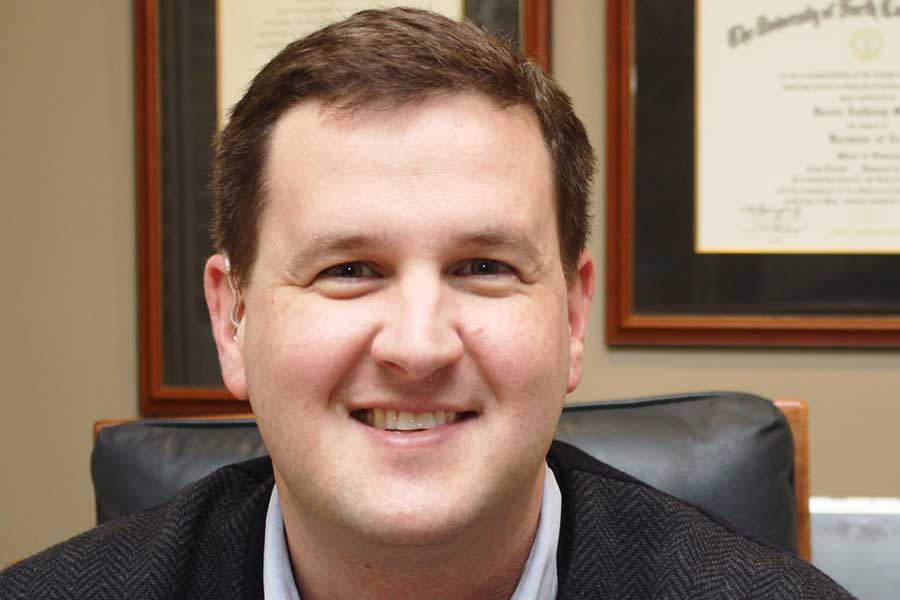The First Presbyterian Church in Philadelphia elected an openly gay minister as its senior pastor, a first in the church’s history.
The Rev. Dr. Baron Mullis will be leading First Presbyterian’s congregation in August when the church’s current pastor, the Rev. Jesse Garner III, steps down after 17 years.
Garner announced his retirement in 2016, and the Center City church began its search for a new head minister. Mullis was called to co-pastor with Garner in the spring and, shortly thereafter, he was selected by First Presbyterian’s pastor-nominating committee to be their nominee as the church’s next pastor. He was then elected by the congregation to be the new pastor and head of staff.
Garner said the church’s inclusion of all has been a longtime effort, adding that First Presbyterian “had our eyes open much earlier than other churches have.”
Mullis agreed.
“Electing an openly gay minister was a great day for equality, but it also represents the direction that First Presbyterian embarked on a long time ago,” he said. “It’s a fruition of an authentic expression of themselves. This is not an anomaly. This is who they are.”
Mullis is relocating to Philadelphia from Atlanta, where he has served as the senior pastor and head of staff at the Morningside Presbyterian Church since 2011. Before then, he served as the associate pastor of Trinity Presbyterian Church in North Carolina for nine years. He began his pastoral career as a Lake Fellow — a two-year residency program for seminary graduates to develop ministerial skills — at the Second Presbyterian Church in Indiana.
When asked about the church’s decision to elect an openly gay pastor, Garner said that First Presbyterian’s inclusivity is reflected in all aspects of its practice.
“We’re a Center City church with an enormous diversity of members. People need to feel completely welcomed in the faith community that they’re a part of, regardless of what faith that is. We invite all to our congregation, whether it’s in the pulpit or in the pews,” Garner said.
Mullis confirmed that he will continue the church’s deep history of inclusivity, saying that “a community can’t be healthy if it doesn’t welcome everyone.” When asked what he’ll focus on once he’s behind the pulpit, Mullis said he “will get to know the church first and will then form those priorities with the congregation.”
“The minister doesn’t set priorities all by himself or herself, but the minister does get to set the tone,” he said. “I’m working on making sure that we’re a strong and healthy community where we care for the children of God in every age and stage of the life cycle.”
As recently as 2010, the General Assembly — the denomination’s largest biennial gathering, where leaders from across the country discuss and make decisions that affect the whole denomination — agreed that the Presbyterian Church “has no consensus in the interpretation of Scripture on issues of same-sex practice.” In that same year, the General Assembly approved an amendment that allows ordination of openly LGBTQ ministers at the discretion of individual parishes, essentially allowing each congregation the decision to ordain or not. The amendment was ratified in 2011, following approving votes from a majority of presbyteries.
At this year’s General Assembly in June, six overtures involving LGBTQ members were introduced and approved, including item 11-13 that affirmed the “gifts” of LGBTQ people for ministry and “celebrates their service in the church and in the world.”
Mullis said he’s optimistic about PCUSA embracing full exclusivity of the LGBTQ community.
“The General Assembly is where minds get changed. Proud of the church as being one of the mainline denominations that acknowledges the gifts from LGBTQ members. I’m optimistic that these overtures introduced at the General Assembly will find their way to being lived fully from the congregations of the Presbyterian Church,” he said. “Our process takes time, but we’re taking vital steps.”
